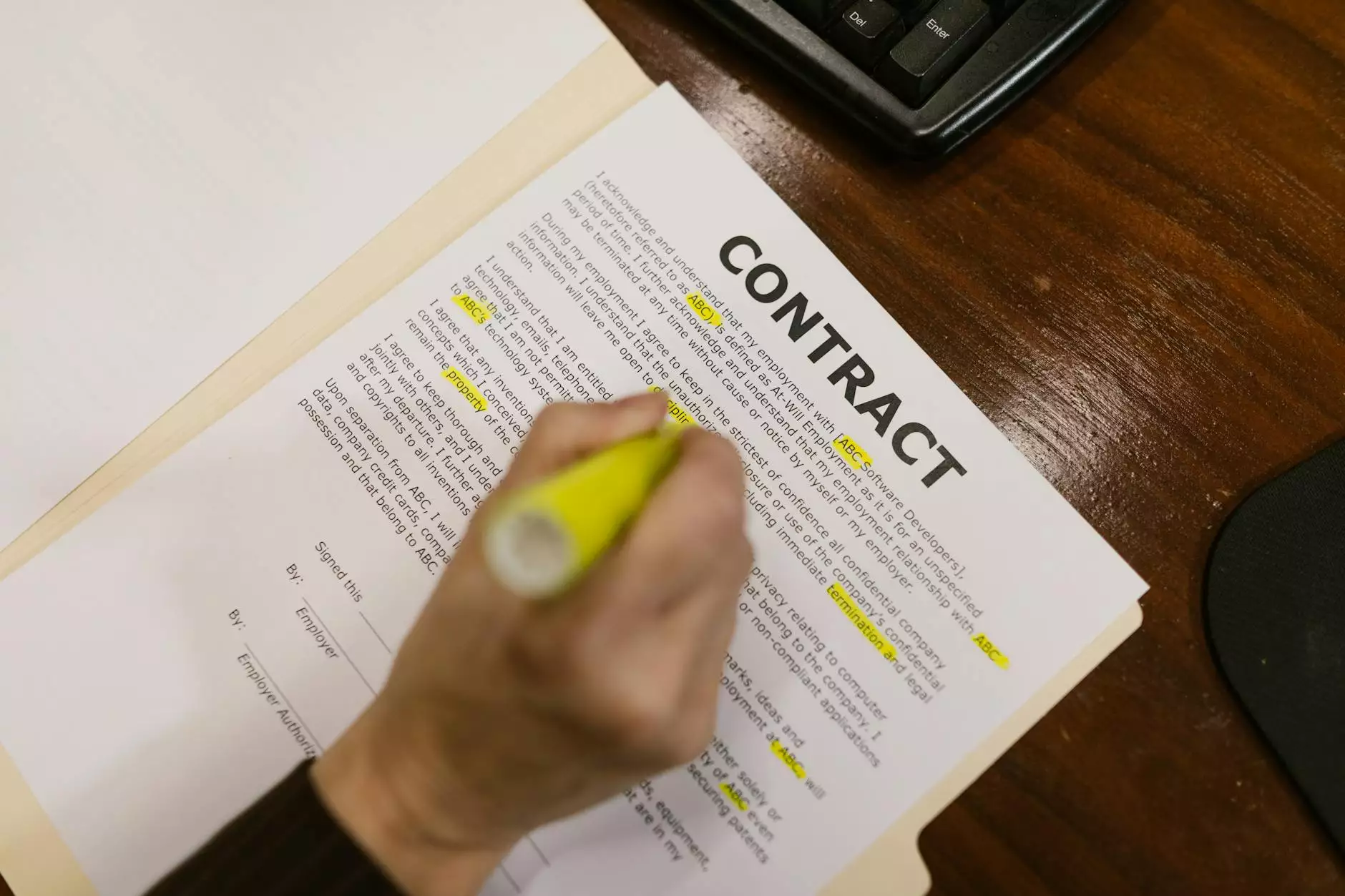Joint Check Agreements: Security, Guaranty & Trust Fund Options
Virginia Lawyer
About Richardson Law Firm PC
Welcome to Richardson Law Firm PC, a leading legal firm specializing in Law and Government matters. With a team of highly proficient and experienced attorneys, we are dedicated to providing our clients with exceptional legal services and guidance. Our focus is on delivering tailored solutions and achieving the best possible outcomes for our clients.
Understanding Joint Check Agreements
A Joint Check Agreement is a legal mechanism commonly used in the construction industry to address payment issues between multiple parties involved in a project. The agreement typically involves the general contractor, subcontractor, and the project owner. It ensures efficient payment distribution, mitigates financial risks, and enhances financial security for all parties.
Benefits of Joint Check Agreements
- Enhanced Payment Security: Joint Check Agreements provide an additional layer of security by ensuring that payment is made directly to the subcontractors or suppliers. This reduces the risk of non-payment or delayed payment.
- Streamlined Payment Process: By centralizing payments, Joint Check Agreements simplify the payment process for all parties involved. This helps avoid payment discrepancies and ensures timely payments.
- Improved Cash Flow Management: Subcontractors and suppliers can maintain better cash flow management through Joint Check Agreements, ensuring the smooth progression of projects.
- Dispute Resolution: Joint Check Agreements can act as evidence during disputes, providing clarity on payment obligations and responsibilities.
Security, Guaranty & Trust Fund Options
In addition to Joint Check Agreements, there are other security, guaranty, and trust fund options available to further protect the interests of various parties involved in construction projects. These options include:
1. Mechanic's Liens
A Mechanic's Lien is a legal claim placed on a property to secure payment for labor or materials supplied during construction or improvement. It provides subcontractors and suppliers with a legal recourse to recover unpaid amounts.
2. Payment Bonds
Payment Bonds are a form of surety bonds that guarantee payment to subcontractors and suppliers in case the general contractor fails to fulfill their payment obligations. These bonds offer an extra layer of financial protection and enable timely completion of projects.
3. Retainage
Retainage refers to the practice of withholding a portion of the payment until the project reaches completion. This retained amount acts as security, providing some assurance to subcontractors and suppliers while ensuring the proper fulfillment of contractual obligations.
4. Trust Funds
Trust Funds, also known as Escrow Accounts, are separate accounts used to hold funds designated for specific projects. These funds provide assurance to subcontractors and suppliers, ensuring the availability of necessary funds for project-related expenses and payments.
Contact Richardson Law Firm PC for Expert Legal Advice
If you require expert legal advice and assistance regarding Joint Check Agreements, Security, Guaranty, or Trust Fund options, contact Richardson Law Firm PC today. Our team of experienced attorneys will provide you with comprehensive guidance, helping you navigate the complexities of construction law and ensure your rights and interests are protected.









